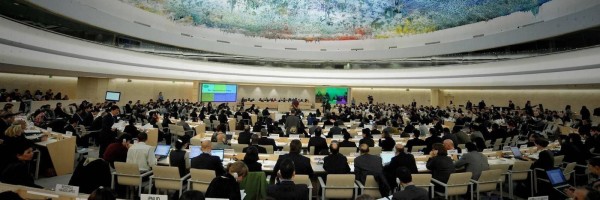The letter below was sent to the Prime Minister of Morocco on 6 February 2023.
Dear Mr. Akhannouch, Prime Minister of Morocco,
On 1 February, 2023, after merely one hearing session, Morocco’s Court of Cassation rejected the request to release Hassan Al-Rabea and ruled in favour of his extradition to Saudi Arabia. Moroccan security forces arrested Al-Rabea on 14 January, 2023, while he attempted to travel to Turkey.
We affirm that Al-Rabea’s arrest is related to a series of reprisals against his family due to his brother Munir’s participation in protests in Saudi Arabia's Qatif province. In February 2021, Saudi State Security forces had arrested Al-Rabea, along with two of his brothers, one of whom, Ali Mohammed Al-Rabea, had then forcibly disappeared for three months. Ali Al-Rabea was then sentenced to death in November 2022 following a trial marred by violations, including the admission of confessions extracted under torture. Furthermore, Saudi Arabia executed two of Hassan’s cousins in unfair trials in 2019, also in relation to the Qatif protests.
We believe that not only is this decision a flagrant violation of human rights, international treaties ratified by Morocco, and Morocco's domestic laws, but the extradition proceedings against Al-Rabea also raise concerns that closer security cooperation between the two countries has resulted in increased abuse of rights.
Ten days after Al-Rabea's arrest in Morocco, the Saudi Deputy Head of State Security, Minister Abdullah bin Fahd bin Saleh Al Owais, visited Morocco at the head of a security delegation where the two countries signed an agreement on security cooperation and combating terrorism.
We point out that extraditing Al-Rabea would violate the Convention against Torture and Other Cruel, Inhuman or Degrading Treatment or Punishment, which Morocco ratified in 1993. Today, the UN Committee against Torture requested Morocco to take interim measures by suspending the extradition of Al-Rabea pending the review of his case.
Moreover, extradition would constitute complicity in the human rights violations that Saudi authorities will likely commit against Al-Rabea, such as torture, ill-treatment, arbitrary detention following unfair trial, and the death penalty. Agreeing to extradite Hassan is a violation of the Moroccan Code of Criminal Procedure, in particular article 721, which states that that “extraditions shall not be granted when there are substantial grounds for believing that an extradition request apparently related to an ordinary offence has in fact been made for the purpose of prosecuting or punishing a person on grounds of his or her race, religion, nationality or political opinion, or may aggravate this person’s situation for any of these reasons”.
We would like to recall that this decision is not the first of its kind, as in March 2021 Morocco extradited businessman Osama al-Hassani to Saudi Arabia, despite fears for his life and safety.
We, the undersigned organisations, thus urge your office to refrain from signing the deportation order against Al-Rabea.
Signed by:
- European Saudi Organization for Human Rights
- ALQST for Human Rights
- MENA Rights Group
- Moroccan Association for Human Rights
- The Freedom Initiative
- World Organisation Against Torture (OMCT)




